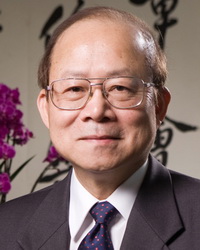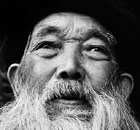Top Biz News
Cross-Straits agreement to boost ties
By George Ng (China Daily)
Updated: 2010-04-01 11:02
 |
Large Medium Small |
 |
|
Schive Chi, chairman of Taiwan Stock Exchange Corp, said an economic cooperation framework agreement between Taiwan and the mainland will benefit both sides. |
"Market attention has been focusing on the features of a traditional trade pact, which places emphasis on removing tax barriers on merchandise trading and hindrances to capital movement," Chi said of the ongoing efforts by both sides of the Taiwan Straits to reach an ECFA.
Chi's comments came as the Taiwan Stock Exchange and Masterlink Securities Corporation jointly hosted the Taiwan Tech Leadership Forum 2010 in Shanghai on Wednesday and Thursday.
This is the first cross-Straits investment conference since the implementation of the cross-Straits financial memorandum of understanding.
Meanwhile, the Taipei-based Straits Exchange Foundation of Taiwan and the Beijing-based Association for Relations Across the Taiwan Straits (ARATS) started their second round of negotiations on the ECFA on Wednesday in Taiwan, with the aim of reaching a final agreement by the end of the first half.
With an ECFA, Taiwan and the mainland could develop a very special relationship that goes far beyond that of traditional trading partners, he suggested.
An ECFA will benefit both sides in terms of lower tariffs which will boost trade and investment, the TWSE chairman said.
With the absence of high tariffs, China Motor and South East Motor could divide their production activities: China Motor manufacturing high-end cars and shipping them to the mainland and South East producing low-end vehicles and exporting them to Taiwan, Chi said.
An ECFA will boost the trade and economic ties between the two sides, with Taiwan's economy particularly gaining significantly, said Michael Lin, executive vice-president of TWSE.
According to estimates by Chung-Hua Institution for Economic Research, the ECFA will add 1.6-1.72 percentage points to the island's annual gross domestic product growth.













